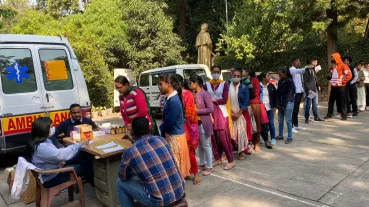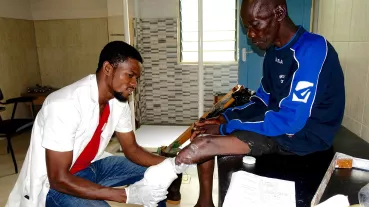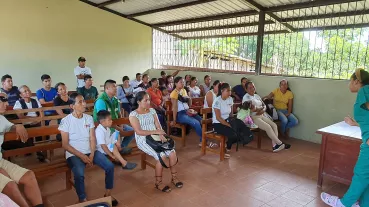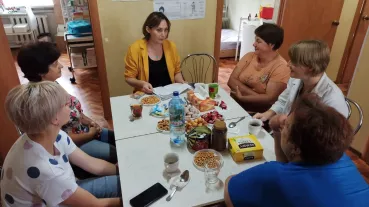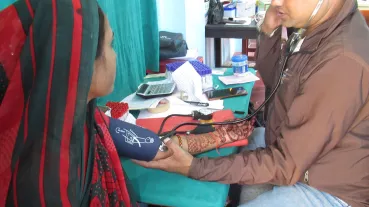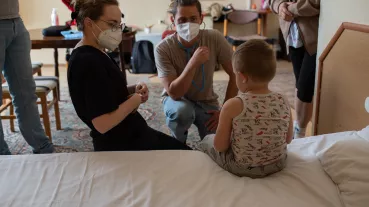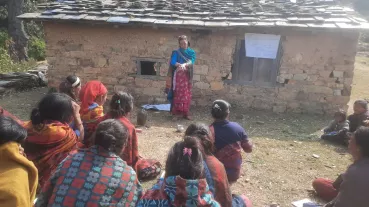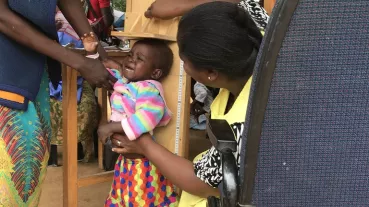Survive and Thrive – Improving the well-being of children with cerebral palsy
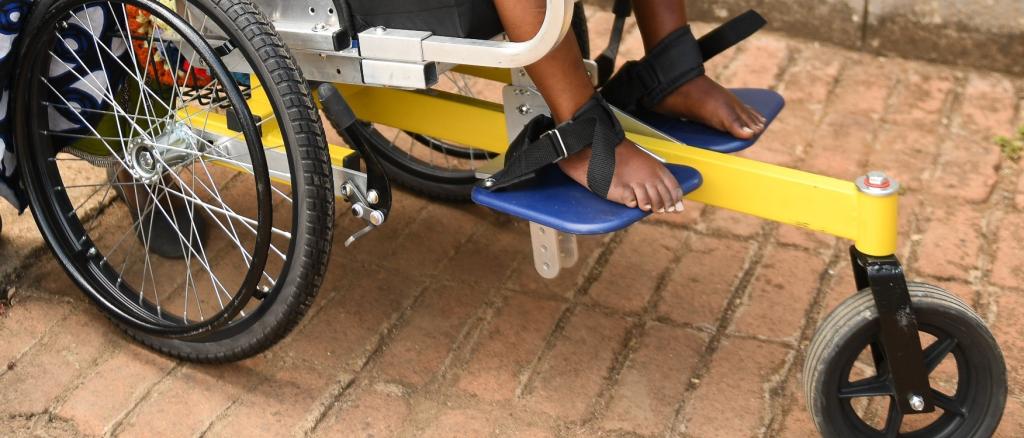
Situation:
80% of disabled children live in poverty and are more likely to experience healthcare issues. Cerebral Palsy (CP) is the most common childhood disability affecting development, mobility, communication and functional activities. Children experience stigma and discrimination. Caregivers do not fully understand cerebral palsy, leading to late referral, impacting negatively on children’s life chances.
Objectives:
The project improves the health outcomes for 300 children (0-5 years) with cerebral palsy and related developmental disablities in rural districts of Malawi.
- Children with cerebral palsy will have improved early development (i.e. feeding and communication.)
- Caregivers will improve the care and support for the cognitive and physical development of their disabled child.
- Healthcare services will increase access to assistive technology and wheelchair services for children with CP.
- Households will have improved economic resilience to meet their basic needs through village saving scheme.
- Increased awareness and improved policies for children with disabilities to access services.
- 300 children have the appropriate support and assistive technology, their wellbeing improves.
- 300 parents/carers empowered to promote their child's development, reduce stigma; household economic resilience improved.
- 175 medical staff and volunteer facilitators benefit from training and refer children; stakeholders cascade the programme and influence disability mainstreaming.
- Proportion of caregivers who report seeing an improvement in critical areas of their disabled children’s development following parent carer training (PCT).
- Change in areas critical to early development in disabled children (i.e. children demonstrate improved self-confidence and able to interact freely with their peers.)
- Caregivers make changes to how they support their child after attending parent carer training sessions and report improved confidence in caring for their disabled child and supporting their cognitive and physical development.
- Improvement in household resilience observed by Village Savings Group members.
- Healthcare workers report increased knowledge of cerebral palsy.
- Children’s Centre manager’s report increased knowledge after attending training.
Key to ensuring impact beyond the project timeframe is for actions to be owned and driven by the parents/carers and the community, health and local non-governmental organisations. Project stakeholders will engage with government representatives from the outset, demonstrating how and why they should provide support to children with cerebral palsy and promoting the importance of investment in high-quality rehabilitation and inclusion services. Planned advisory meetings are key to uniting and propelling action and change and will address the lack of understanding around CP.
Capacity building is also essential for sustainability. To address the lack of understanding and training around CP, senior medical professional, district-level health professionals, community-based rehabilitation workers, health surveillance assistants, healthcare assistants and staff at Community Based Childrens Centre’s, will be trained. For identification and referral, the project builds on and strengthens existing structures to promote earlier diagnosis and for rehabilitation the project utilises the Ministry of Health integrated outreach services.
The project facilitates the links between community organisations, wheelchair and care services and government, and builds the capacity of Feed the Children Malawi (FCTM) to take the lead with national stakeholders and achieves sustainability by phasing out Motivation's role. FCTM is very well established and therefore our collaboration focuses on the exchange of expertise and resource mobilisation and strengthening links at district level.
Project stakeholders will engage with government representatives from the outset, demonstrating how and why they should provide support to children with cerebral palsy and promoting the importance of assitive technology and high-quality rehabilitation and inclusion services. We will sustain change by working directly with decision makers to influence policy and practice. At national level, we will work closely with the ECD Coordination Office to ensure disability is recognised within national ECD policy.
The team will advocate for the government to prioritise budgeting for assistive technology and support for people with disabilities. We will liaise with district staff and the Area Development Committees and the Early Childhood Development (ECD) Coordinator to establish good working relationships and ownership. The project will also lobby the district health offices to provide transport for outreach rehabilitation clinics and to include assistive devices in their annual budgets.
Malawi has an extensive network of Community Based Children’s Centres but they lack training and resources to cater for disabled children and enrolment is dependent on the child's ability to communicate and walk. The training uniquely addresses the lack of CP-specific knowledge and awareness of available services resulting in late identification and referral, which means the critical window for ECD intervention is missed. The project is also innovative in that it addresses children‘s inclusion in early years provision and also holistically considers the fragility of households though new village savings schemes.
Here you can find further information.
